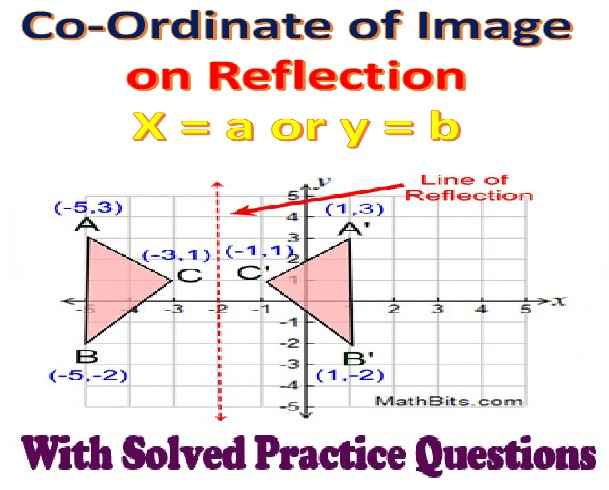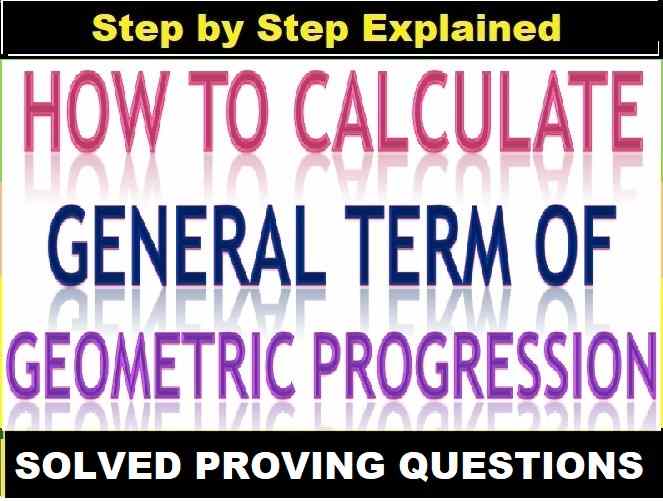Geometric Progression Exe-11D Class-10 Concise Maths Solution Ch-11. In this article you would learn calculate sum of n term of G. P. We Provide Step by Step Solutions / Answer of questions for Selina Concise Maths. Visit official Website CISCE for detail information about ICSE Board Class-10 Mathematics.

Geometric Progression Exe-11D Class-10 Concise Maths Solution Ch-11
| Board | ICSE |
| Publications | Selina |
| Subject | Maths |
| Class | 10th |
| Chapter-11 | Geometric Progression |
| Writer | R.K. Bansal |
| Exe-11A | calculate sum of n term of G. P |
| Edition | 2025-2026 |
Calculate Sum of n Term of G. P
Geometric Progression Exe-11D Class-10 Concise Maths Solution Ch-11
Que-1: Find the sum of G.P. :
(i) 1 + 3 + 9 + 27 +….to 12 terms.
(ii) 0.3 + 0.03 + 0.003 + 0.0003 +….to 8 terms.
(iii) 1 – 1/2 + 1/4 – 1/8 + ………. to 9 terms.
(iv) 1-1/3 + 1/3^2 – 1/3^3 + ……… to n terms.
(v) x+y/x-y +1 + x-y/x+y + ……….. upto n terms.
(vi)√3 + 1/√3 + 1/3√3 + ……….. upto n terms.
Ans:
(i)
Here,
First term, a = 1
Common ratio, r =3/1 = 3 …(∵ r > 1)
Number of terms to be added, n = 12
∴ Sn=a(rn-1)/r-1
= S12=1(312-1)/3-1
= 3^12-1/2
= 531441-1/2
= 531440/2
= 265720
(ii)
Here,
First term, a = 0.3
Common ratio, r = 0.03/0.3= 0.1 …(∵ r < 1)
Number of terms to be added, n = 8
∴ Sn=a(1-rn)/1-r
= S8=0.3(1-(0.1)^8)/1-0.1
= 0.3(1-(0.1)8^)0/.9
=1-(0.1)^8/3
= 1/3(1 – 1/10^8)
(iii)
Here,
First term, a = 1
Common ratio, r = -1/2 / 1=-1/2 …(∵ r < 1)
Number of terms to be added, n = 9
∴ Sn=a(1-r^n)/1-r
= S8=1(1-(-1/2)9^) / 1-(-1/2)
= 1-(-12)^9 / 1+1/2
= 1+1/2^9 / 3/2
= 23(1+1/2^9)
= 23(1+1/512)
= 2/3×513/512
= 171/256
(iv)
Here,
First term, a = 1
Common ratio, r = -1/3 / 1=-13 …(∵ r < 1)
Number of terms to be added = n
∴ Sn=a(1-r^n)/1-r
= Sn=1(1-(-1/3)^n) / 1-(-1/3)
= 1-(-1/3)^n / 4/3
= 3/4 [1-(-1/3)^n]
(v)
Here,
First term, a =x+y/x-y
Common ratio, r = 1 / x+y/x-y=x-y/x+y …(∵ r < 1)
Number of terms to be added = n
∴ Sn=a(1-r^n)/1-r
= Sn=x+y/x-y / (1-(x-y/x+y)^n) / 1-(x-y/x+y)
= x+y/x-y(1-(x-y/x+y)^n) / x+y-x+y/x+y
= x+y/x-y(1-(x-y/x+y)^n) / 2y/x+y
= (x+y)² (1-(x-y/x+y)^n) / 2y(x-y)
(vi)
Here,
First term, a = √3
Common ratio, r = 1/√3 / √3=1/3 …(∵ r < 1)
Number of terms to be added = n
∴ Sn=a(1-r^n)/1-r
Sn=√3(1-(1/3)^n) / 1-1/3
= √3(1-1/3^n) / 2/3
= 3√3/2(1 – 1/3^n)
Que-2: How many terms of the geometric progression 1 + 4 + 16 + 64 +…. must be added to get sum equal to 5461 ?
Ans: First term, a = 1
Common ratio, r = 4/1=4 …(∵ r > 1)
Let the number of terms to be added = n
Then, Sn = 5461
a(r^n-1)/r-1=5461
=1(4th-1)/4-1=5461
=4th-1/3=5461
4th – 1 = 16383
4th = 16384
n = 7
Hence, required number of terms = 7
Que-3: The first term of a G.P. is 27 and its 8th term is 1/81 . Find the sum of its first 10 terms.
Ans: Given,
First term, a = 27
8th term = ar7 = 1/81
n = 10
Now,
ar^7/a=1/81 / 27
r^7=1/2187
r^7=(1/3)^7
r=1/3 …(∵ r < 1)
∴ Sn=a(1-r^n)/1-r
S10=27(1-(1/3)^10) / 1-1/3
= 27(1-1/3^10) / 2/3
= 81/2(1-1/3^10)
Que-4: A boy spends Rs 10 on first day, Rs 20 on second day, Rs 40 on third day and so on. Find how much, in all, will he spend in 12 days?
Ans: Amount spent on 1st day = Rs. 10
Amount spent on 2st day = Rs. 20
Amount spent on 3rd day = Rs. 40 and so on
Now, 20/10=2,40/20=2,
Thus, 10, 20, 40, …… is a G.P. with first term, a = 10 and common ratio, r = 2 …(∵ r > 1)
∴ Total amount spent in 12 days = S12
Sn=a(rn-1)/r-1
S12=10(2^12-1)/2-1
= 10(212 – 1)
= 10(4096 – 1)
= 10 × 4095
= 40950
Hence, the total amount spent in 12 days is Rs. 40950.
Que-5: The 4th and the 7th terms of a G.P. are 1/27 and 1/729 respectively. Find the sum of n terms of this G.P.
Ans: For a G.P.,
4th term = ar3 = 1/27
7th term = ar6 = 1/729
Now, ar^6/ar^3=1/729 / 1/27
r^3=1/27=(1/3)^3
r=1/3 …(∵ r < 1)
a×1/27=1/27
a = 1
Sn=a(1-r^n)/1-r
Sn=1(1-(1/3)^n) / 1-1/3
= 1-1/3^n / 2/3
= 3/2 (1-1/3^n)
Que-6: A geometric progression has common ratio = 3 and last term = 486. If the sum of its terms is 728 ; find its first term.
Ans: For a G.P.,
Common ratio, r = 3 …(∵ r > 1)
Last term, l = 486
S = 728
lr-a/r-1=728
486×3-a/3-1=728
1458-a/2=728
1458 – a = 1456
Hence, the first term is 2.
Que-7: Find the sum of G.P. : 3, 6, 12, …… 1536.
Ans: First term, a = 3
Common ratio, r =6/3 = 2 …(∵ r > 1)
Last term, l = 1536
∴ Required sum = lr-a/r-1
= 1536×2-3/2-1
= 3072 – 3
= 3069
Que-8: How many terms of the series 2 + 6 + 18 +…. must be taken to make the sum equal to 728 ?
Ans: 6/2=3,18/6=3
Thus, given series is a G.P. with first term, a = 2 and common ratio, r = 3 …(∵ r > 1)
Let the number of terms to be added = n
Then, Sn = 728
a(rn-1)/r-1=728
2(3n-1)/3-1=728
3n – 1 = 728
3n = 729
3n = 36
n = 6
Hence, required number of terms =
Que-9: In a G.P., the ratio between the sum of first three terms and that of the first six terms is 125 : 152. Find its common ratio.
Ans: Let a be the first term and r be the common ratio of given G.P.
Now, sum of first three terms = S3 = a(r^3-1)/r-1
Now, sum of first six terms = S6 = a(r^6-1)/r-1
It is given that
a(r^3-1)/r-1 / a(r^6-1)/r-1=125/152
r^3-1/r^6-1=125/152
r^3-1/(r^-1)(r^3+1)=125/152
= 152-125/125
= 27/125
r=3/5
Hence, the common ratio is 3/5
Que-10: Find how many terms of G.P 2/9 – 1/3 + 1/2 .… must be added to get the sum equal to 55/72 ?
Ans: Here,
First term, a = 2/9
Common ratio, r = -1/3 / 2/9=-3/2<1
Let required number of terms be n.
Sn=55/72
a(1-r^n)/1-r=55/72
2/9(1-(-3/2)^n) / 1-(-3/2)=55/72
1-(-3/2)^n=55/72×5/2×9/2
1-(-3/2)^n=275/32
1-275/32=(-3/2)^n
-243/32=(-3/2)^n
n = 5
∴ Required number of terms = 5
Que-11: If the sum of 1 + 2 + 22 +…..+ 2n – 1 is 255, find the value of n.
Ans: Now, 2/1=2,2^2/2=2
Thus, given series is a G.P. with first term, a = 1
Common ratio, r = 2 …(∵ r > 1)
Last term, l = 2n – 1
Let there be n terms in the series.
Then, Sn = 255
lr-a/r-1=255
2n-1×2-1/2-1=255
2n – 1 × 2 – 1 = 255
2n – 1 × 2 = 256
2n – 1 = 128
2n – 1 = 27
n – 1 = 7
n = 8
Que-12: Find the geometric mean between :
(i) 4/9 and 9/4
(ii) 14 and 7/32
(iii) 2a and 8a^3
Ans:
(i) Geometric mean between 49 and 94
= √4/9×9/4
= √1
= 1
(ii) Geometric mean between 14 and 7/32
= √14×7/32
= √49/16
= 7/4
(iii) Geometric mean between 2a and 8a3
= √2a×8a^3
= √16×a^4
= 4a2
Que-13: The sum of three numbers in G.P. is 39/10 and their product is 1. Find the numbers.
Ans: Let the number be ar, a and ar.
a/r×a×ar=1
a3 = 1
a = 1
Now, a/r+a+ar=39/10
1/r+1+r=39/10
1+r+r^2/r=39/10
10 + 10r + 10r2 = 39r
10r2 – 29r + 10 = 0
10r2 – 25r – 4r + 10 = 0
5r(2r – 5) – 2(2r – 5) = 0
(2r – 5)(5r – 2) = 0
r=5/2 or r=2/5
Thus, required terms are :
a/r,a,ar=1 / 5/2,1,1×5/2 or 1 / 2/5,1,1×2/5
= 2/5,1,5/2 or 5/2,1,2/5
Que-14: The first term of a G.P. is – 3 and the square of the second term is equal to its 4th term. Find its 7th term.
Ans: For a G.P.
First term, a = –3
It is given that,
(2nd term)2 = 4th term
(ar)2 = ar3
a2r2 = ar3
a = r
r = –3
Now, 7th term = ar6
= –3 × (–3)6
= –3 × 729
= –2187
Que-15: Find the 5th term of the G.P. 5/2 , 1,….
strong>Ans: First term (a) = 5/2
And common ratio (r) = 1 / 5/2=2/5
Now tn = arn – 1
5th term = t5
= 5/2×(5/2)^5-1
= 5/2×(2/5)^4
= (2/5)^3
= 8/125
Que-16: The first two terms of a G.P. are 125 and 25 respectively. Find the 5th and 6th terms of the G.P.
Ans: First term (a) = 125
And common ratio (r) = 25/125=1/5
Now tn = arn – 1
5th term = t5
= 125×(1/5)^5-1
= 125×(1/5)^4
= 125×1/625
= 1/5
6th term = t6
= 125×(1/5)^6-1
= 125×(1/5)^5
= 125×1/3125
= 1/25
Que-17: Find the sum of the sequence – 1/3 , 1, – 3, 9,….upto 8 terms.
Ans: Here, 1 / -1/3=-3/1
= 9/-3
= –3
Thus, the given sequence is a G.P. with first term (a) = -1/3 and common ratio (r) = –3 …(∵ r < 1)
Number of terms to be added, n = 8
∴ Sn=a(1-r^n)/1-r
S8=-1/3(1-(-3)^8)/1+3
= -1+3^8/12
= 1/12 (3^8 -1)
Que-18: The first term of a G.P. in 27. If the 8th term be 1/81 , what will be the sum of 10 terms ?
Ans: First term, a = 27
8th term = ar7 = 1/81
n = 10
Now,
ar^7/a=1/81 / 27
r^7=1/2187
r^7=(1/3)^7
r=1/3 …(∵ r < 1)
∴ Sn=a(1-r^n)/1-r
S10=27(1-(1/3)^10) / 1-1/3
= 27×3/2(1-1/3^10)
= 81/2(1 – 1/3^10)
Que-19: Find a G.P. for which the sum of first two terms is – 4 and the fifth term is 4 times the third term.
Ans: Let the five terms of the given G.P. be
a/r^2,a/r,a,ar,ar^2
Given, sum of first two terms = – 4
a/r^2+a/r=4
a+ar/r^2=-4
a+ar=-4r^2
a/(1+r)=-4r^2
a=-4r^2/1+r
And 5th term = 4(3rd term)
ar2 = 4(a)
r2 = 4
r = ±2
When r = +2,
a=-4(2)^2/1+2=-16/3
When r = –2,
a=-4(-2)^2/1-2=-16
Thus, the required terms are a/r^2,a/r,a,ar,ar^2
i.e -4/3,-8/3,-16/3,-32/3,-64/3 OR 4,-8,16,-32,64
— : Geometric Progression Exe-11D Class-10 Concise Maths step by step Solution Ch-11 :—
Return to :- Selina Concise Solutions for ICSE Class-10 Maths
Thanks
Please Share with Your Friends


